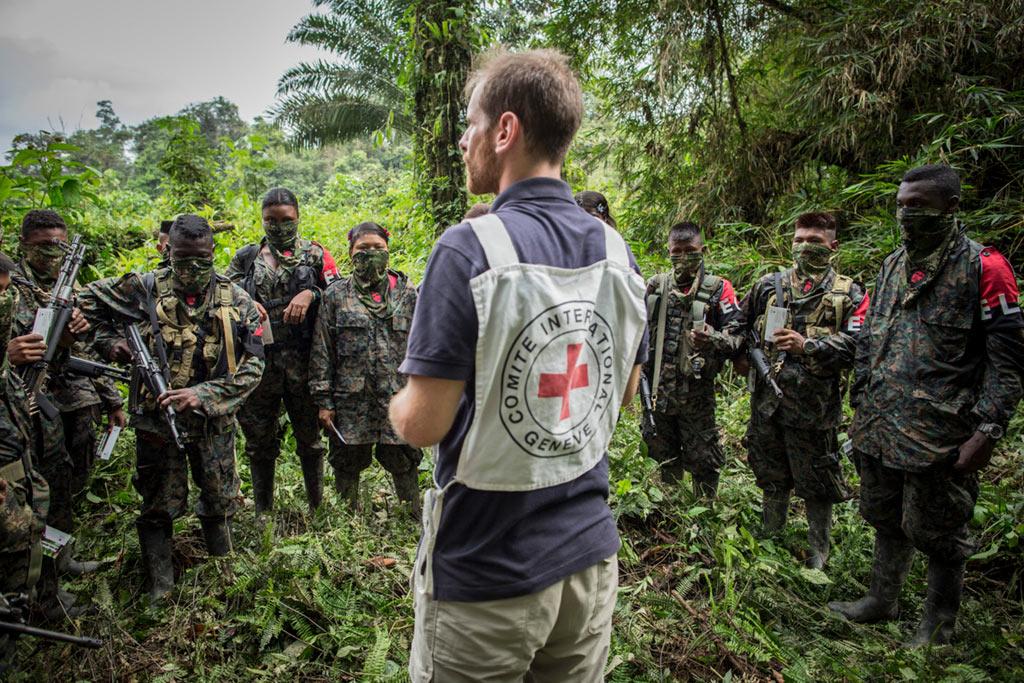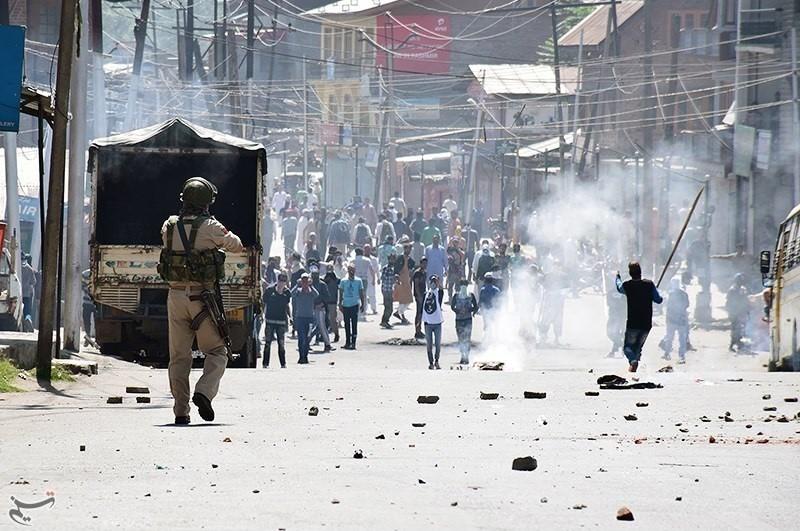In a world marked by persistent conflicts, natural disasters, and human rights abuses, the idea of humanitarian intervention has never been more urgent—or more complex. From refugees fleeing war zones to communities devastated by famine, the global community faces profound challenges in deciding when and how to step in. Yet, despite decades of discussion, there remains a striking lack of consensus on the principles, legality, and execution of such interventions. In today’s interconnected yet politically fragmented world, seeking common ground on humanitarian action isn’t just desirable—it’s essential. This article explores the evolving landscape of humanitarian interventions, the debates shaping international responses, and the quest for a unified approach that respects sovereignty while protecting human dignity.
Table of Contents
- Humanitarian Interventions in a Complex World Understanding the Challenges and Stakes
- Navigating Sovereignty and Human Rights Balancing National Interests with Global Responsibility
- Building Bridges Through Multilateral Cooperation Strengthening International Institutions for Effective Action
- Crafting Clear Guidelines and Enforcement Mechanisms Toward a Unified Global Framework
- Wrapping Up
Humanitarian Interventions in a Complex World Understanding the Challenges and Stakes
Navigating the intricacies of humanitarian interventions demands an acute awareness of geopolitical tensions, cultural sensitivities, and ethical dilemmas. These operations often occur in environments where local and international interests collide, making the establishment of a common ground elusive. The challenge lies not only in delivering timely aid but also in respecting the sovereignty of nations while responding to urgent crises. Stakeholders must weigh the consequences of action versus inaction, balancing immediate relief efforts with long-term stability and peace-building strategies.
Key challenges revolve around several core issues:
- Lack of unified global governance: Diverse political agendas create roadblocks to consensus and cooperation.
- Operational constraints: Limited access due to conflict zones, bureaucratic hurdles, and security concerns delay response times.
- Resource allocation: Ensuring aid reaches those most in need amidst competing priorities.
- Ethical uncertainties: Avoiding unintended consequences such as dependency, destabilization, or exacerbation of conflicts.
Successful interventions require fostering dialogue among international bodies, governments, NGOs, and affected communities to align objectives and share responsibilities transparently. Such collaboration is essential to enhance legitimacy and effectiveness, ultimately forging pathways toward durable solutions in a world where crises transcend borders and demand collective action.
Navigating Sovereignty and Human Rights Balancing National Interests with Global Responsibility
In today’s interconnected world, the delicate dance between a nation’s sovereignty and the imperative to uphold universal human rights remains a complex challenge. While states fiercely guard their borders and political autonomy, crises such as genocides, mass displacements, and systematic abuses demand intervention beyond traditional diplomatic channels. The difficulty lies not only in deciding when and how to intervene but also in ensuring such actions respect the legitimacy of nation-states while protecting vulnerable populations. This balance requires a nuanced understanding of international law, regional dynamics, and the evolving norms that shape global governance.
Achieving a global consensus on humanitarian interventions means embracing a multidimensional approach:
- Respecting sovereignty: Recognizing states’ rights to self-governance while promoting accountability.
- International cooperation: Leveraging institutions like the United Nations to broker solutions and sanction collective action.
- Preventive diplomacy: Prioritizing early conflict resolution to avoid the need for later interventions.
- Inclusive dialogue: Incorporating voices from affected communities and regional actors to shape intervention strategies.
Only through consensus-building and shared responsibility can the international community hope to transform reactive crises management into proactive peacekeeping dedicated to human dignity.
Building Bridges Through Multilateral Cooperation Strengthening International Institutions for Effective Action
In an era marked by complex crises that transcend borders, the power of collective action has never been more critical. Multilateral cooperation serves as the backbone for addressing humanitarian emergencies with efficiency and fairness. When nations unite within strong international institutions, they create a platform to share resources, intelligence, and expertise, enabling rapid and coordinated responses that save lives. Successful humanitarian interventions hinge on consensus, demanding transparent dialogue and mutual respect among all stakeholders to uphold sovereignty while acting decisively to alleviate suffering.
Strengthening these global institutions requires more than just formal agreements; it calls for practical reforms and a clear commitment from all parties involved. Key elements that forge effective multilateralism include:
- Inclusive decision-making: Ensuring voices from diverse regions and developing nations are heard.
- Accountability mechanisms: Holding actors responsible for execution and outcomes.
- Flexible frameworks: Adapting quickly to new challenges without bureaucratic delays.
- Investment in diplomacy: Building trust and preventing conflicts before they escalate.
By focusing on these pillars, the international community can transform humanitarian interventions from fragmented efforts into cohesive, impactful operations, demonstrating global solidarity in its most vital form.
Crafting Clear Guidelines and Enforcement Mechanisms Toward a Unified Global Framework
To establish a robust global framework for humanitarian interventions, it is essential to draft unequivocal guidelines that respect sovereignty while ensuring the protection of human rights. These guidelines must be comprehensive yet adaptable, allowing for flexibility across diverse geopolitical landscapes. Clear criteria for intervention, such as the scale of human suffering and the imminence of threats, should be emphasized to prevent arbitrary or politically motivated actions. Furthermore, transparency and accountability mechanisms must be embedded from the outset to maintain global trust and legitimacy.
Enforcement mechanisms are equally critical in translating guidelines into tangible outcomes. A universally accepted oversight body, supported by international legal instruments, can monitor compliance and address violations impartially. Key components to consider include:
- Regular audits and impact assessments to measure the effectiveness and consequences of interventions.
- Sanctions or remedial actions for states or actors that violate established norms.
- Collaborative engagement with regional organizations to tailor enforcement in contextually appropriate ways.
By anchoring the process in clearly defined principles and ensuring impartial enforcement, the international community can move toward a unified approach that prioritizes humanity over politics.
Wrapping Up
As the world grows increasingly interconnected, the urgency of forging a shared approach to humanitarian interventions has never been clearer. Striking the delicate balance between respect for sovereignty and the imperative to protect human rights remains a complex challenge—one that demands ongoing dialogue, transparency, and cooperation among nations. While consensus may seem elusive, every step toward unified action strengthens the global commitment to alleviating suffering and upholding dignity. In the end, achieving meaningful change hinges on our collective willingness to listen, understand, and act together in the face of humanity’s most pressing crises.












